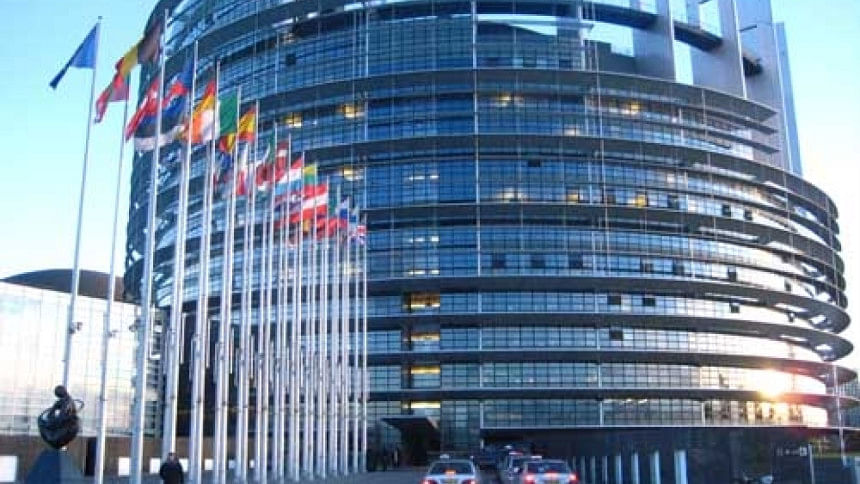Labour Right Issues: EU presses for compliance by mid-June

The European Union yesterday suggested that Bangladesh comply with the ILO-recommended labour right standards by mid-June this year to avoid “consequences” with regard to its current trade privileges in the EU market.
The suggestion was put forward by a four-member EU delegation that wrapped up its three-day Bangladesh tour yesterday.
The EU team also stressed the need for a uniform labour law for all workers in Bangladesh -- including those at factories in the export processing zones.
“We note that Bangladesh was mentioned under a special paragraph in the last ILO conference in Geneva, June 2016,” Arne Lietz, a member of the European Parliament, said at a press conference in Dhaka.
He said the International Labour Organization called upon Bangladesh to address several issues, including amendment to the labour law, registration of trade unions and reduction of labour harassment.
“It is important that these issues are addressed before the 18th May review of the Sustainability Compact and the June annual International Labour Conference of the ILO.”
Lietz, however, noted that Bangladesh made a remarkable progress, especially in workplace safety in the garment sector, and that the visiting members of the European Parliament would submit a positive note to their colleagues at the EU headquarters in Brussels.
Replying to a query on Bangladesh's security challenges, he said freedom of the media, a free civil society, and freedom of speech and expression must be ensured so that institutions, NGOs, government organisations, students and other players in the society can bring up these issues in debates and discussions.
He pointed out that the EU and other partners of the Sustainability Compact would review the progress Bangladesh made in the RMG sector in terms of ensuring workplace safety and labour rights.
In response to a question, Pierre Mayaudon, EU ambassador in Dhaka, said he didn't know what would happen if Bangladesh's progress is not found satisfactory in the review meetings of the Sustainability Compact and the ILO.
Following the Rana Plaza disaster in April 2013, Bangladesh signed the Sustainability Compact with the EU in September that year, committing itself to responsible business behaviour and improvement of workplace safety and labour rights.
Lietz noted that the EU is currently examining the whole issue of fairness in garment supply chains across the globe. “The Accord and Alliance are encouraging examples of what can be achieved when companies, government and workers pool efforts to improve standards.”
During the visit, the delegation led by Lietz met the prime minister, the Speaker of parliament, the commerce minister, the labour minister, leaders of Bangladesh Garment Manufacturers and Exporters Association (BGMEA) and labour unions, representatives of brands and retailers, and also ILO officials.
Lietz said, “We felt a readiness and goodwill from all parties to engage on this issue and are hopeful this will translate into concrete progress before the May review of Sustainability Compact in Dhaka and the Geneva ILO Conference in mid-June.
“As members of the Progressive Alliance of Socialists and Democrats in the European Parliament, our engagement with Bangladesh, as with other countries, is guided by our core values where respect for human rights and labour rights, in particular freedom of association and collective bargaining, ranks high.”
“That is why the full implementation of the Sustainability Compact is so important in our view,” he added.
Norbert Neuser, another member of the EU parliament, said, “Bangladesh has done a very good job. You have a big chance to be a great nation. Really, Bangladesh made a good progress, especially in the garment sector. A lot of investments are coming from the EU enterprises.”
Bangladesh raked in $18.68 billion from its exports to the EU in fiscal 2015-16, which was 54.57 percent of the total receipts for the year. Of the $18.68 billion, $17.15 billion came from apparel shipments. The EU currently accounts for more than 62 percent of Bangladesh's garment export receipts in a year.

 For all latest news, follow The Daily Star's Google News channel.
For all latest news, follow The Daily Star's Google News channel. 



Comments